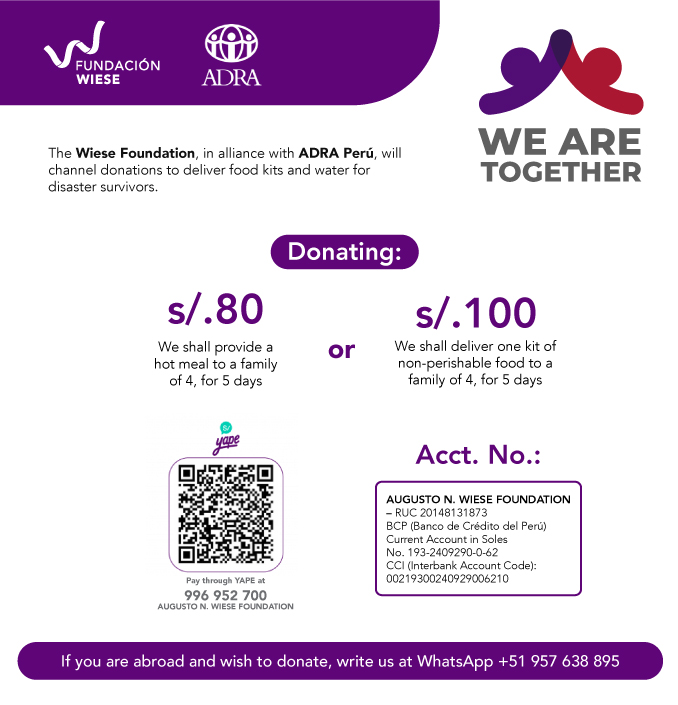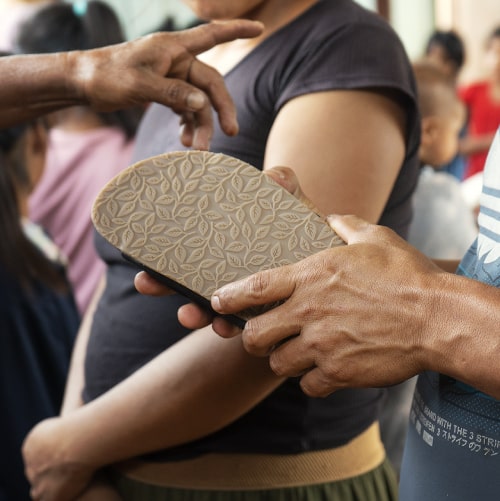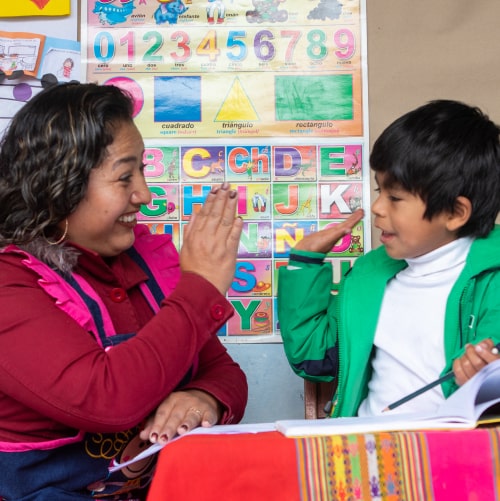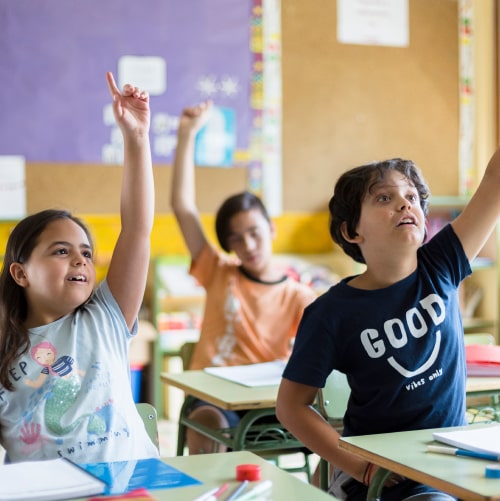- The WIESE FOUNDATION together with Adra Perú –its strategic ally–made its second delivery of dry food kits to serve 400 affected families in the province of Chepén.
“Karen Leiva Mejía used to live with her two minor daughters in a rented little house in the upper part of Jr. Atahualpa, in Chepén, of which nothing remains. Her little daughter, María de los Ángeles (9), recently underwent heart surgery and must follow her controls in Lima, Karen’s sister lives with her two elderly parents in a small house in the same neighborhood. They could not come to the distribution because they are elderly and because they stayed removing the mud from their house. They miraculously escaped a disaster last week when part of the house’s mud-cake roof collapsed because of the rains. The family received 30 kg of non-perishable food to help them for 10 days, until Karen and her sister can sell food on the street again”, says Ingrid Claudet, general manager of the Wiese Foundation.
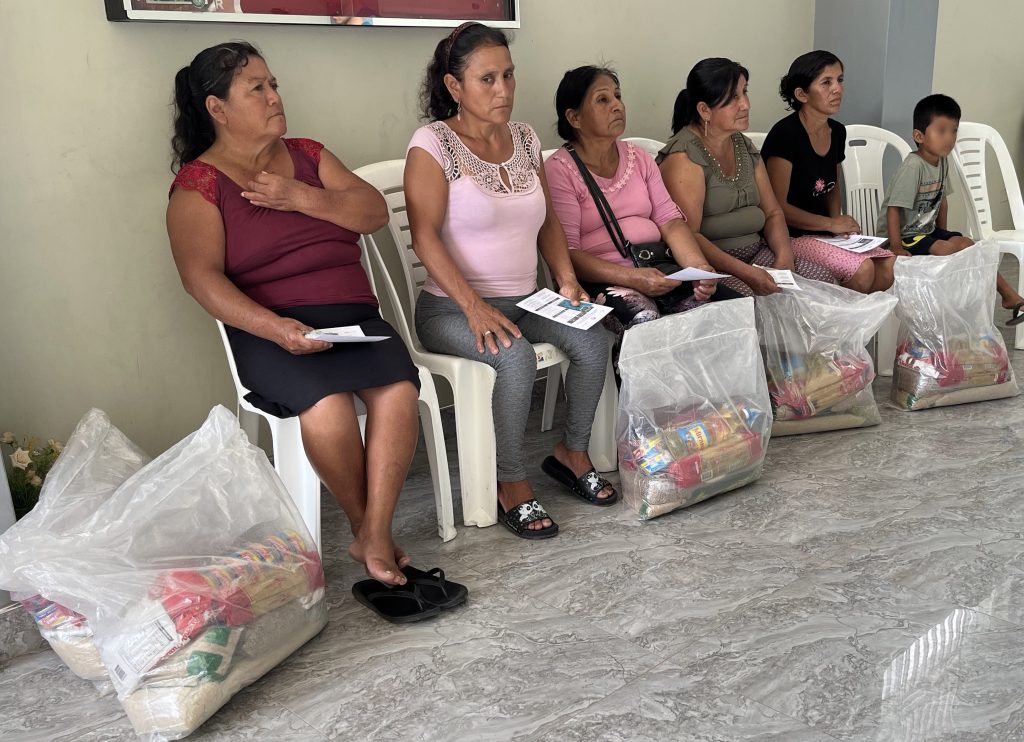
Faced with the emergency triggered by the sudden and intense rain precipitations, caused by the beginning of the rainy season, the presence of Cyclone Yaku and the anomalous warming of the sea, since last February to date, various areas of the country have been confronting floods and landslides that have caused more than 60 fatalities so far and have affected the health, homes and livelihoods of thousands of Peruvian families.
One of the most affected provinces is Chepén. According to the report of the Provincial Municipality of Chepén, as of March 27, 4693 people were reported affected, 1415 disaster survivors, 1731 homes affected, 377 uninhabitable and 44 destroyed.

About the intervention
In order to ensure that the aid reaches the vulnerable people who have been most affected, on March 30 and 31 and April 1, we carried out a door-to-door census, verifying in situ the damages and the conditions in which the potential beneficiary families of this second delivery of food found themselves.
Subsequently, within the framework of the Humanitarian Aid Program of the Wiese Foundation, the distribution of 400 kits of raw food, each weighing 15kg, was organized for the same number of affected and disaster survivor families in the most impacted areas of the province of Chepén. With that, we seek to bring relief to the critical situation that the aforementioned families are going through, attending to their food needs, as they manage to resume their usual activities of economic sustenance.
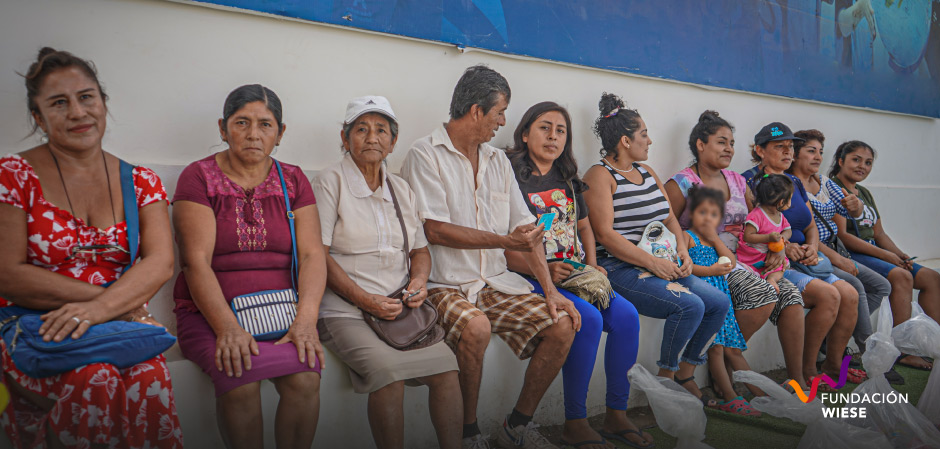
- Total number of families benefited: 400 (see table)
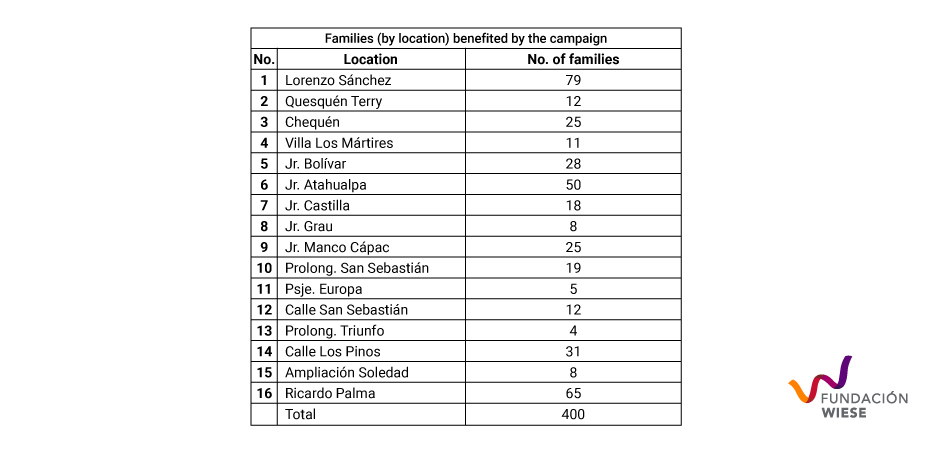
What does each Food Kit contain?
These Food Kits are designed to cover the nutrition of a family of 4 members for a period of 5 days.
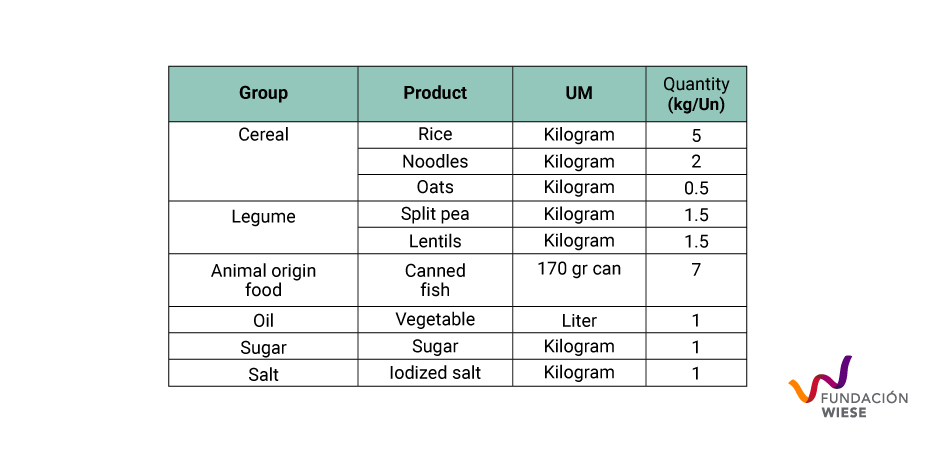
Soon, we will be informing you of the next deliveries of dry food scheduled for attending to the emergency, as well as the other actions planned to provide support to the most vulnerable affected.
At the Wiese Foundation, we reaffirm our work and commitment to attend to the most vulnerable communities in emergency situations and disasters. Learn more about our program here.
Do you wish to join? Remember that you can also make your donation through our bank account or the Yape payment system.
